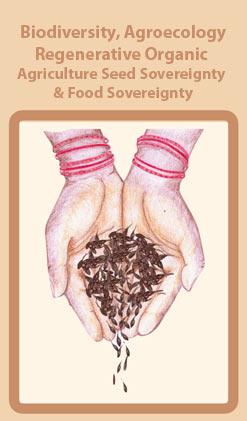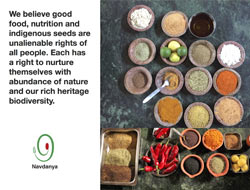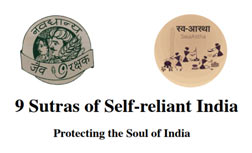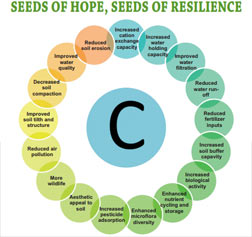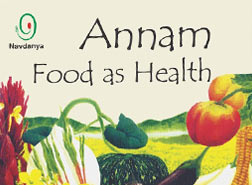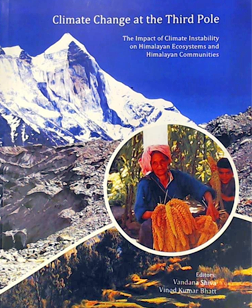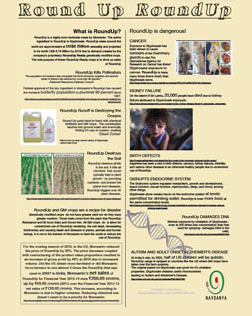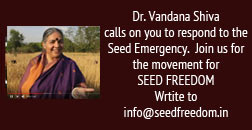By Satish Kumar
“I offer you love.” – Mahatma Gandhi
Mahatma Gandhi was a champion of Love Revolution. For him love should permeate all and every aspect of our lives. Be it political, social or personal, all human activities should be informed by love. Love should be the organising principle of individual lives as well as of the whole of society. For Gandhi love had no borders and no boundaries, no limits and no conditions. He said, “where there is love, there is life and where there is love there is light.”
Love as a basis of personal relationships has been accepted and advocated by many. All religions and most philosophical traditions preach and promote love as a foundation for personal behaviour. But for Mahatma Gandhi love should also be the motivation behind political policies, economic decisions and business behaviour.
The practice of love among friends and family members is good but not sufficient. Love has to come out of the confinements of homes, temples and monasteries. Love should be practiced in the corridors of political power and in the marketplace.
All our activities of agriculture, education, medicine, arts and crafts should emerge from the foundation of love. All our work should be “love made visible”. Teachers should teach not just to earn money but because they love children and they love teaching. Earning a living is only a means to an end. The true purpose is to love and to serve children. Similarly doctors need to practice medicine because they love to heal the sick, farmers need to produce food because they love to feed the hungry, politicians need to go into politics because they love to serve people, traders engage in business because they love to meet the needs of their communities. Every profession needs a vocation.
In order to bring love into every sphere of society Mahatma Gandhi developed the concept of Sarvodaya. This word has many meanings, including the wellbeing of All, love for All and the happiness of all. Here All means All; all human beings and all sentient beings. Harmony at all levels.
Mahatma Gandhi rejected the utilitarian idea of “the maximum good of the maximum number”. Political and economic policies should be designed for the good of All, and not just for the majority. Political and social philosophy must respect the dignity of All life and not accord higher status to any one form of life. All life means all non-human life as well as human life. We must love animal life, plant life and every other form of life. Pollution of oceans and rivers with agro-chemicals and plastic is violence. Contamination of the air with excessive carbon emissions and greenhouse gasses show a lack of love for the living planet. Destruction of forests, cruelty to animals in factory farms and the poisoning of the soil with herbicides and insecticides are a consequence of an absence of compassion. Diminishing biodiversity is the result of diminishing kindness.
Political philosophies like utilitarianism, socialism and capitalism see human life above all other forms of life. And since, according to this view, human life is superior to the life of plants, animals and oceans, humans are accorded the right to control them, exploit them and use them as they wish. This anthropocentrism is contrary to the Gandhian philosophy of nonviolence and love, which is the foundation of Sarvodaya. The Mahatma believed that the value of non human life should not be measured in terms of its usefulness to humans, because all life has intrinsic value. Therefore reverence for All life is the fundamental principle of Sarvodaya.
The holistic philosophy of Sarvodaya insists on changing human attitudes, human hearts and human relationships with nature. Our attitude needs to be based in the unity of life rather than the separation and dualism between human life and the rest of life. An inner transformation is the prerequisite for changing human behaviour.
According to the science of evolution all life has evolved from the same source, from the same single origin. Oceans, forests and animals are the ancestors of human kind. All living beings are made of the same basic five elements; earth, air, fire, water and consciousness. Trees, animals and humans are all made of these same five elements.
Sarvodaya moves away from the story of separation and embraces the story of relationship. We are All connected. Unity and diversity are complementary. Evolution is a journey from unity to diversity and not a descent from unity to separation and dualism. Diversity is not division. Diversity is the celebration of unity. All forms of diversity are interrelated through the intricate web of life. Through love of life, love of the earth and love of nature we take care of All life on earth, without discrimination, without judgment and without ifs and buts.
The mindset which separates and divides humans from nature also divides one group of humans from another group of humans. We divide people in the name of caste, class, nationality, politics, gender, race and religion. We begin to put one caste, class, nationality, politics, gender, race or religion above other. We turn human diversity into human division. Such division leads to competition, conflict and war. We devise our politics in the interest of one group rather than another. National interest of one country is seen to be in conflict with the interest of another country. Class conflict leads to class war. The welfare of the working class is perceived to be contrary to the welfare of the bosses. All this is a consequence of separational and dualistic political philosophy.
Sarvodaya perceives the clash of interest among humans to be the result of the conditioning of our minds. In the greater scheme of things All humans have a common interest. That common ground can be found in love. All people wish to be happy, healthy and want to live in harmony with each other and in harmony with planet earth. Therefore, with a consciousness based in love we share our happiness and wellbeing with others. We care for each other, and we care for the earth. We design our policies to serve the interest of All, without exception. Principle of Sarvodaya suggests that we should give no offence to anyone and make no enemy of anyone. Love even those with whom we disagree. Love without borders and love without frontiers! Love has more power to win the hearts and minds than any amount of bombs and weapons. “Conquer with love” said Gandhi.
Talking about All seems to be too broad and vague. To love All, where do we start in our political decision making? Mahatma Gandhi answered that question. He said that when you are making a policy decision and allotting funds from the governmental budget, ask yourself who will benefit from this decision? If your decision is going to benefit the poorest of the poor, the weakest of the week and the most deprived members of the society first then that decision reflects your love for All. Mahatma Gandhi rejected the trickle down theory of economic decision making. The eonomics and politics of love has to be reflected in urgent and immediate action to end social injustice and the exploitation of the poor and the weak.
In terms of our love for the whole of planet earth Mahatma Gandhi also had a simple formula. If human activities produce waste and pollution of the air, water and soil and inflict pain and suffering on animals then those activities are contrary to our love of the earth. Moreover humans need to practice humility. We need to take from nature to meet our genuine needs and do so with gratitude and not exploit natural resources to meet our cravings, greed, extravagance and desires to horde, accumulate and possess unnecessary stuff. Gandhi said that “the Earth provides enough for everybody’s need but not enough for anybody’s greed”. Nature is not merely a resource for the economy, nature is the source of life. Love for the earth in practical terms means caring for the earth.
This is not simply a lofty ideal. It is pragmatic and practical politics. It has been proved again and again that the politics of separation, division, conflict and competition is stressful, wasteful and counterproductive. Politics of serving the interest of one group against another or the interest of humans against nature has been tried and it has failed over and over again. Mahatma Gandhi believed that “power based on love is a thousand time more effective and permanent than the one derived from fear of punishment.” Therefore, Mahatma Gandhi asks us to give the politics of love a chance.
The ideal of love is considered to be a spiritual ideal. But for Gandhi there is no division between practical and spiritual. Practical has to be spiritual and spiritual has to be practical. Therefore, the solutions to our environmental problems, personal unhappiness, social divisions, economic inequality, International conflicts, racial discrimination and umpteen other pressing issues lie in one great idea; the idea of Sarvodaya; Love for All.
Satish Kumar is the author of Elegant Simplicity, available from www.resurgence.or/shop
Mahatma Gandhi’s Philosophy of Love for All
By Satish Kumar
“I offer you love.” – Mahatma Gandhi
Mahatma Gandhi was a champion of Love Revolution. For him love should permeate all and every aspect of our lives. Be it political, social or personal, all human activities should be informed by love. Love should be the organising principle of individual lives as well as of the whole of society. For Gandhi love had no borders and no boundaries, no limits and no conditions. He said, “where there is love, there is life and where there is love there is light.”
Love as a basis of personal relationships has been accepted and advocated by many. All religions and most philosophical traditions preach and promote love as a foundation for personal behaviour. But for Mahatma Gandhi love should also be the motivation behind political policies, economic decisions and business behaviour.
The practice of love among friends and family members is good but not sufficient. Love has to come out of the confinements of homes, temples and monasteries. Love should be practiced in the corridors of political power and in the marketplace.
All our activities of agriculture, education, medicine, arts and crafts should emerge from the foundation of love. All our work should be “love made visible”. Teachers should teach not just to earn money but because they love children and they love teaching. Earning a living is only a means to an end. The true purpose is to love and to serve children. Similarly doctors need to practice medicine because they love to heal the sick, farmers need to produce food because they love to feed the hungry, politicians need to go into politics because they love to serve people, traders engage in business because they love to meet the needs of their communities. Every profession needs a vocation.
In order to bring love into every sphere of society Mahatma Gandhi developed the concept of Sarvodaya. This word has many meanings, including the wellbeing of All, love for All and the happiness of all. Here All means All; all human beings and all sentient beings. Harmony at all levels.
Mahatma Gandhi rejected the utilitarian idea of “the maximum good of the maximum number”. Political and economic policies should be designed for the good of All, and not just for the majority. Political and social philosophy must respect the dignity of All life and not accord higher status to any one form of life. All life means all non-human life as well as human life. We must love animal life, plant life and every other form of life. Pollution of oceans and rivers with agro-chemicals and plastic is violence. Contamination of the air with excessive carbon emissions and greenhouse gasses show a lack of love for the living planet. Destruction of forests, cruelty to animals in factory farms and the poisoning of the soil with herbicides and insecticides are a consequence of an absence of compassion. Diminishing biodiversity is the result of diminishing kindness.
Political philosophies like utilitarianism, socialism and capitalism see human life above all other forms of life. And since, according to this view, human life is superior to the life of plants, animals and oceans, humans are accorded the right to control them, exploit them and use them as they wish. This anthropocentrism is contrary to the Gandhian philosophy of nonviolence and love, which is the foundation of Sarvodaya. The Mahatma believed that the value of non human life should not be measured in terms of its usefulness to humans, because all life has intrinsic value. Therefore reverence for All life is the fundamental principle of Sarvodaya.
The holistic philosophy of Sarvodaya insists on changing human attitudes, human hearts and human relationships with nature. Our attitude needs to be based in the unity of life rather than the separation and dualism between human life and the rest of life. An inner transformation is the prerequisite for changing human behaviour.
According to the science of evolution all life has evolved from the same source, from the same single origin. Oceans, forests and animals are the ancestors of human kind. All living beings are made of the same basic five elements; earth, air, fire, water and consciousness. Trees, animals and humans are all made of these same five elements.
Sarvodaya moves away from the story of separation and embraces the story of relationship. We are All connected. Unity and diversity are complementary. Evolution is a journey from unity to diversity and not a descent from unity to separation and dualism. Diversity is not division. Diversity is the celebration of unity. All forms of diversity are interrelated through the intricate web of life. Through love of life, love of the earth and love of nature we take care of All life on earth, without discrimination, without judgment and without ifs and buts.
The mindset which separates and divides humans from nature also divides one group of humans from another group of humans. We divide people in the name of caste, class, nationality, politics, gender, race and religion. We begin to put one caste, class, nationality, politics, gender, race or religion above other. We turn human diversity into human division. Such division leads to competition, conflict and war. We devise our politics in the interest of one group rather than another. National interest of one country is seen to be in conflict with the interest of another country. Class conflict leads to class war. The welfare of the working class is perceived to be contrary to the welfare of the bosses. All this is a consequence of separational and dualistic political philosophy.
Sarvodaya perceives the clash of interest among humans to be the result of the conditioning of our minds. In the greater scheme of things All humans have a common interest. That common ground can be found in love. All people wish to be happy, healthy and want to live in harmony with each other and in harmony with planet earth. Therefore, with a consciousness based in love we share our happiness and wellbeing with others. We care for each other, and we care for the earth. We design our policies to serve the interest of All, without exception. Principle of Sarvodaya suggests that we should give no offence to anyone and make no enemy of anyone. Love even those with whom we disagree. Love without borders and love without frontiers! Love has more power to win the hearts and minds than any amount of bombs and weapons. “Conquer with love” said Gandhi.
Talking about All seems to be too broad and vague. To love All, where do we start in our political decision making? Mahatma Gandhi answered that question. He said that when you are making a policy decision and allotting funds from the governmental budget, ask yourself who will benefit from this decision? If your decision is going to benefit the poorest of the poor, the weakest of the week and the most deprived members of the society first then that decision reflects your love for All. Mahatma Gandhi rejected the trickle down theory of economic decision making. The eonomics and politics of love has to be reflected in urgent and immediate action to end social injustice and the exploitation of the poor and the weak.
In terms of our love for the whole of planet earth Mahatma Gandhi also had a simple formula. If human activities produce waste and pollution of the air, water and soil and inflict pain and suffering on animals then those activities are contrary to our love of the earth. Moreover humans need to practice humility. We need to take from nature to meet our genuine needs and do so with gratitude and not exploit natural resources to meet our cravings, greed, extravagance and desires to horde, accumulate and possess unnecessary stuff. Gandhi said that “the Earth provides enough for everybody’s need but not enough for anybody’s greed”. Nature is not merely a resource for the economy, nature is the source of life. Love for the earth in practical terms means caring for the earth.
This is not simply a lofty ideal. It is pragmatic and practical politics. It has been proved again and again that the politics of separation, division, conflict and competition is stressful, wasteful and counterproductive. Politics of serving the interest of one group against another or the interest of humans against nature has been tried and it has failed over and over again. Mahatma Gandhi believed that “power based on love is a thousand time more effective and permanent than the one derived from fear of punishment.” Therefore, Mahatma Gandhi asks us to give the politics of love a chance.
The ideal of love is considered to be a spiritual ideal. But for Gandhi there is no division between practical and spiritual. Practical has to be spiritual and spiritual has to be practical. Therefore, the solutions to our environmental problems, personal unhappiness, social divisions, economic inequality, International conflicts, racial discrimination and umpteen other pressing issues lie in one great idea; the idea of Sarvodaya; Love for All.
Satish Kumar is the author of Elegant Simplicity, available from www.resurgence.or/shop


